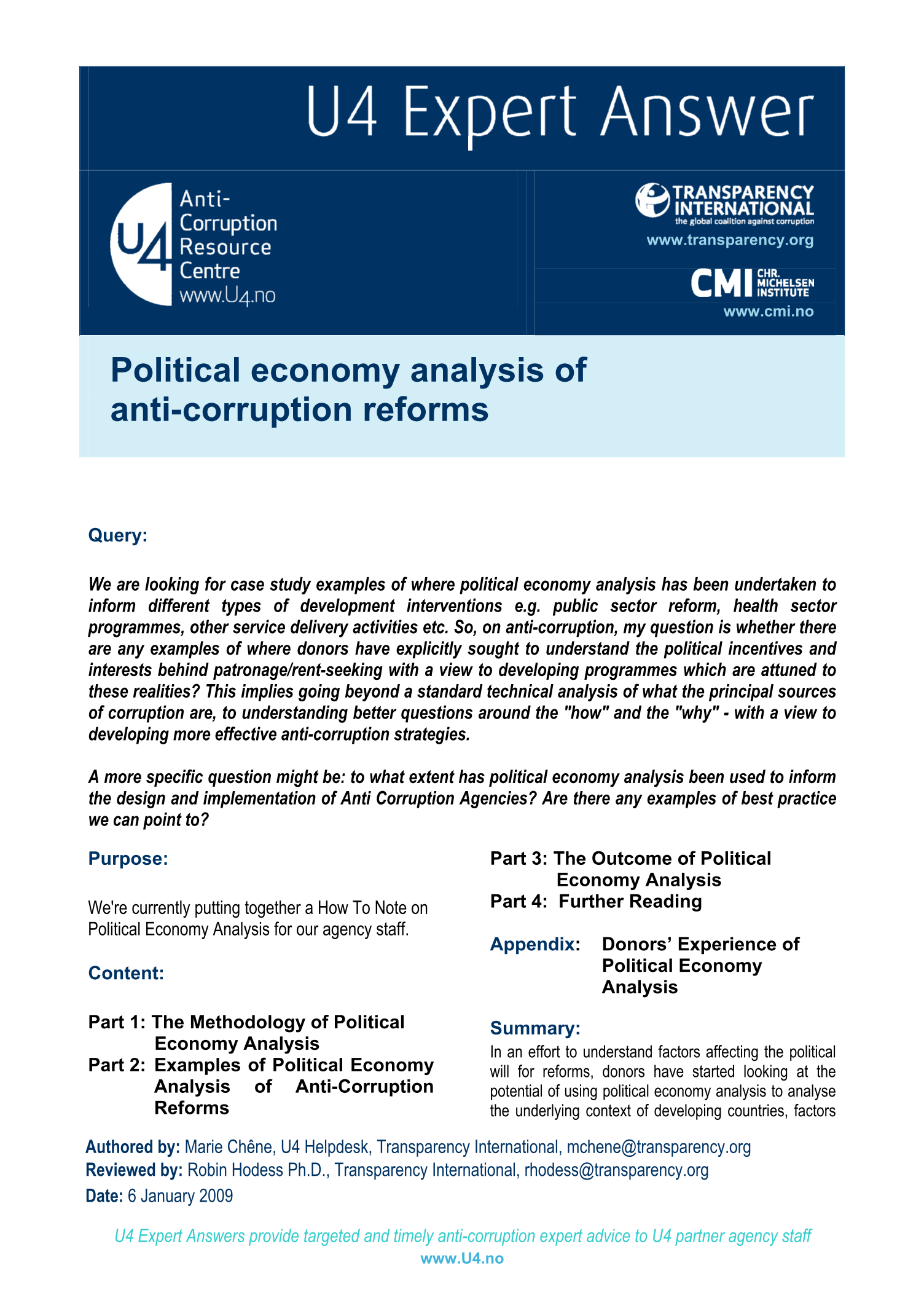U4 Helpdesk Answer
Political economy analysis of anti-corruption reforms
In an effort to understand factors affecting the political will for reforms, donors have started looking at the potential of using political economy analysis to analyse the underlying context of developing countries, factors and processes that promote or block governance reforms. Initiatives such as DFID’s Drivers of Change or SIDA`s Power Analysis reflect this emerging trend. In the field of governance and anti-corruption, an increasing number of studies supported by the World Bank, the Netherlands or USAID adopt a similar approach to understanding the formal and informal dimensions of economic and political processes that are likely to affect the success of anti-corruption reforms. While these studies have generated a wealth of knowledge, the challenge remains to incorporate the findings into operational work and use them to inform the development of effective anti-corruption strategies.

Cite this publication
(2009) Political economy analysis of anti-corruption reforms. Bergen: U4 Anti-Corruption Resource Centre, Chr. Michelsen Institute (U4 Helpdesk Answer Helpdesk)
Disclaimer
All views in this text are the author(s)’, and may differ from the U4 partner agencies’ policies.
This work is licenced under a Creative Commons Attribution-NonCommercial-NoDerivatives 4.0 International licence (CC BY-NC-ND 4.0)

